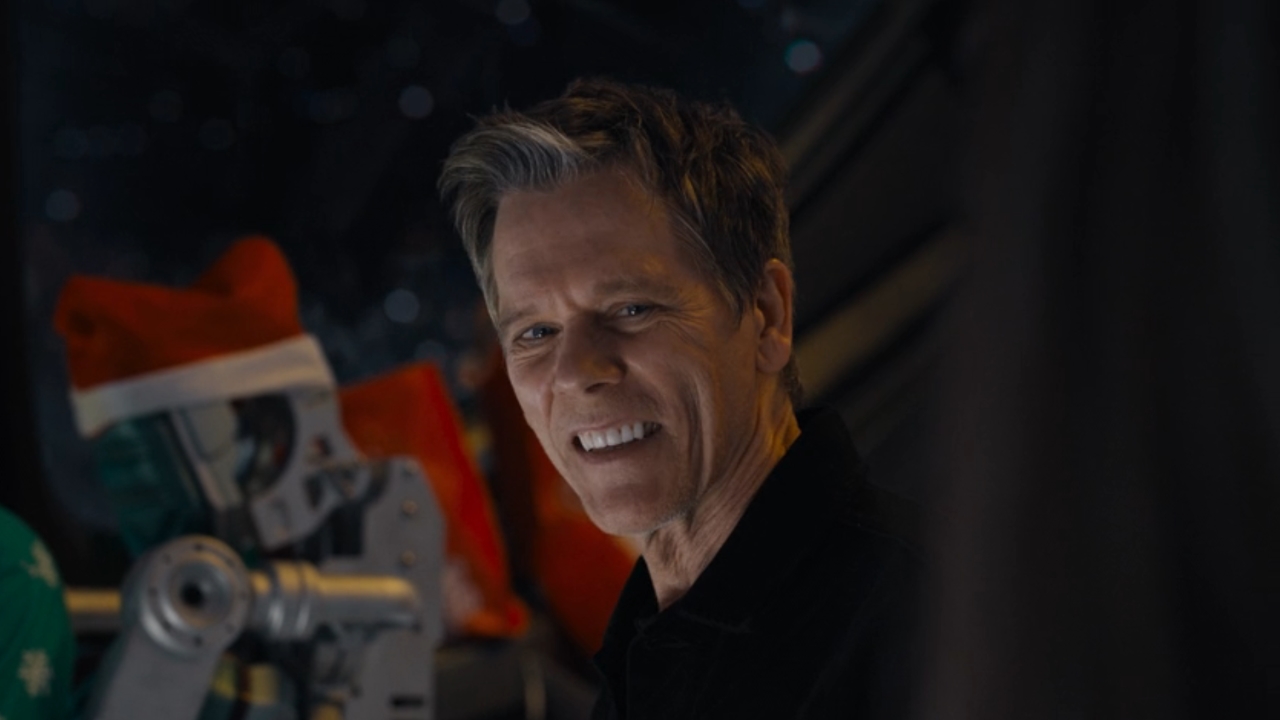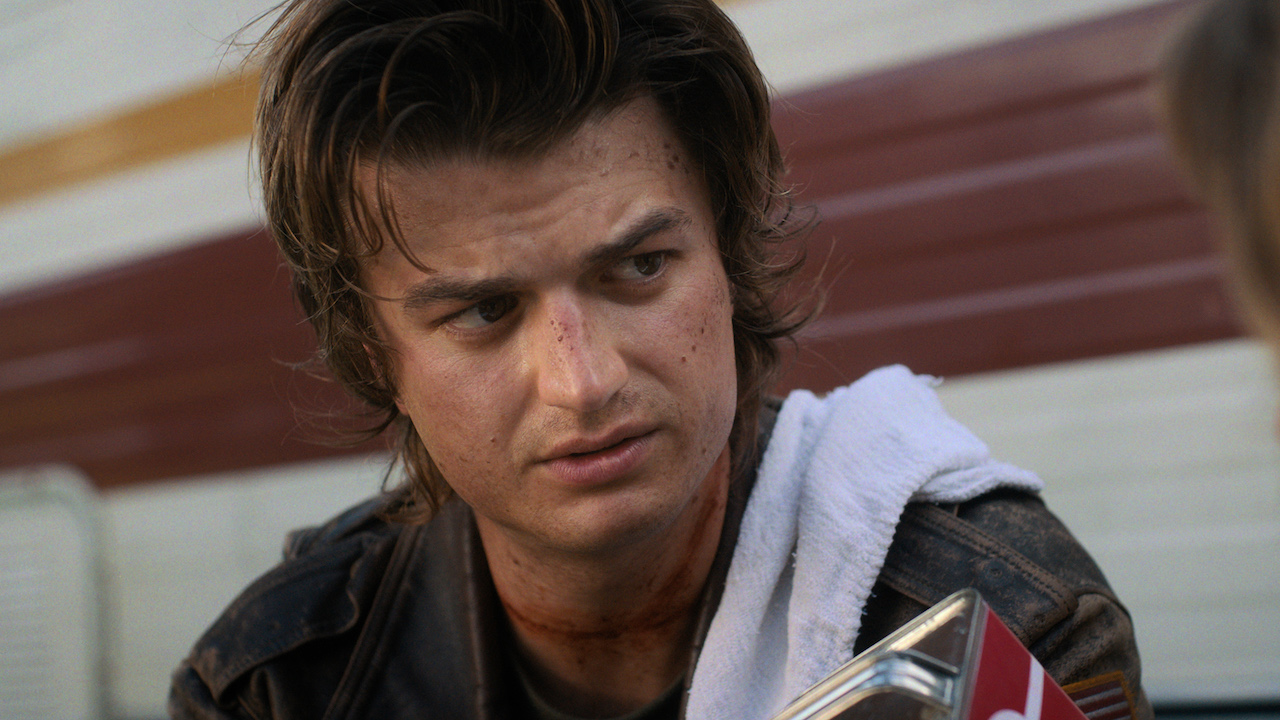Adapting Stephen King's The Body: Looking Back On The Nostalgic Beauty Of 1986’s Stand By Me

In 1986, Stephen King’s name and face were all over movie advertisements… for Maximum Overdrive. The horror comedy based on the short story “Trucks” marked the author’s directorial debut, and the marketing team behind the release worked hard to make that fact known by the public (something King agreed to in exchange for his film getting a big summer release date). The effort wasn’t ultimately successful, as the feature notoriously ended up being a flop, but it still marked a big moment demonstrating the writer/filmmaker’s pop culture power and presence.
Rob Reiner’s Stand By Me is a completely different story entirely. Released only a few weeks after Maximum Overdrive, the film is most definitely a Stephen King adaptation – based on the novella “The Body” from the collection Different Seasons – but that was an aspect not prominently promoted in the run up to its release. This was intended not to confuse audiences about the new movie, the studio not wanting to let King’s reputation in the horror genre give people the wrong impression about the coming-of-age tale, and as a result his name is only briefly shown in the trailer, and is featured in small type at the bottom of the poster.
It’s a strange irony, as while Maximum Overdrive is now pretty much relegated to cult movie status despite its direct association with the beloved author, Stand By Me is one of the most cherished films of the modern age, and based on what is arguably the most personal story that Stephen King has ever written.
Stand By Me is a gorgeous and timeless work about growing up, able to hit nostalgia buttons for all generations, and it has wonderful origins that tie back to the author’s own experiences growing up in Maine. Needless to say, this is a week that I have been highly anticipating since the launch of this Adapting Stephen King column, so let’s dive into the film, starting with the history behind “The Body.”
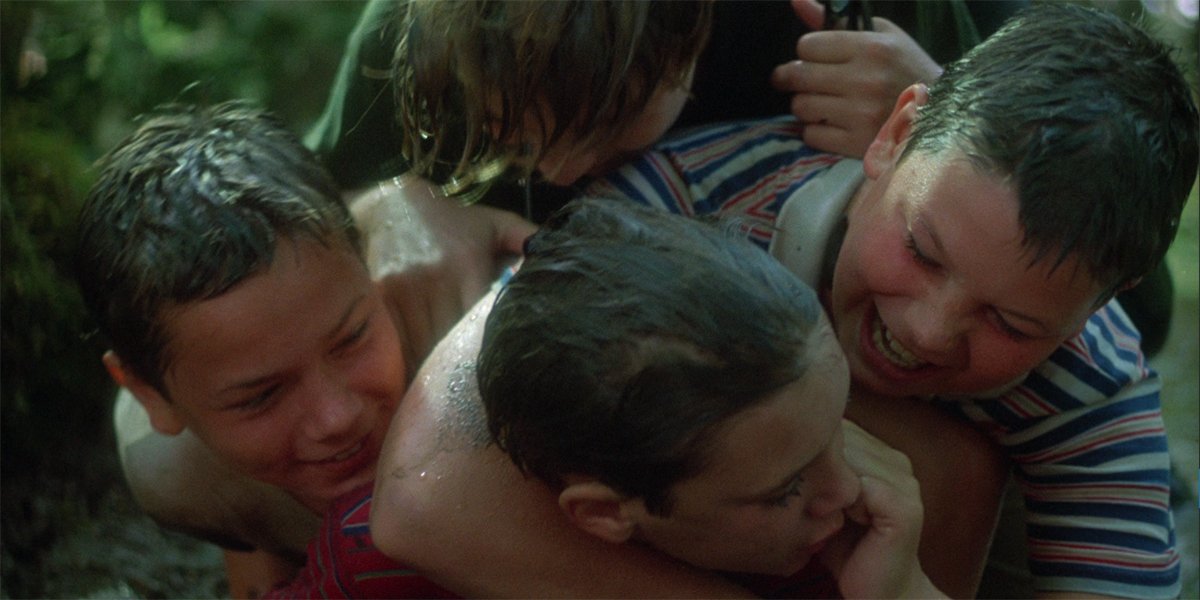
What “The Body” Is About
Without being reductive, the core of what “The Body” is about appears in print on page 351 of the hardcover edition of Different Seasons: “I never had any friends later on like the ones I had when I was twelve. Jesus, did you?” In addition to being a wholly relatable sentiment, it summarizes Stephen King’s deeper intent with the novella, as he attempted to grasp and bottle his own experiences as a kid – albeit with a stronger stress on emotional truth than factual truth.
A number of key moments from “The Body” were directly inspired by events in King’s own life. When he was in seventh grade, for example, there was a controversy about stolen milk money – though unlike the character Chris Chambers, the young writer was viewed as above suspicion because of his good reputation. Likewise, the trestle run is akin to a rite of passage that he faced when he was in college, and the author had his own terrifying episode involving a pond full of leeches.
Stephen King knew early in his career that he wanted to find a way to capture these stories in fiction (he first completed the manuscript for “The Body” following the completion of his second published novel, Salem’s Lot), but he struggled to discover the narrative thread that would tie everything together. As explained in the documentary Walking The Tracks: The Summer Of Stand By Me, he eventually realized that he needed a literal journey for his characters to go on, and came up with the idea of them learning about the location of a dead body.
CINEMABLEND NEWSLETTER
Your Daily Blend of Entertainment News
The ultimate circumstances of this are also rooted in Stephen King’s childhood, though they technically don’t come from his own personal memories. Instead, as he recounts in his 1981 non-fiction book Danse Macabre, they come from events from his life as remembered by his mother:
According to Mom, I had gone off to play at a neighbor’s house—a house that was near a railroad line. About an hour after I left I came back (she said), as white as a ghost. I would not speak for the rest of that day; I would not tell her why I’d not waited to be picked up or phoned that I wanted to come home; I would not tell her why my chum’s mom hadn’t walked me back but had allowed me to come alone. It turned out that the kid I had been playing with had been run over by a freight train while playing on or crossing the tracks.
The repressed memory of this incident was digested by Stephen King’s mind and became the tale of Ray Brower – who is technically the titular character in “The Body.”
Written as a kind of fictionalized memoir, the story is told from the perspective of an adult writer named Gordie LaChance reflecting on his time growing up in the late 1950s in the small town of Castle Rock, Maine. Gordie, a blossoming writer who is invisible in the eyes of his family (particularly after the death of his older brother), is closer with his core group of friends than anybody in the world, including the angry, risk-taking Teddy Duchamp; the goofy Vern Tessio; and the troubled peacemaker Chris Chambers.
One day, Vern overhears his brother Billy talking with his friend about coming upon the body of Ray Brower – a peer who has been missing. When Vern relays this, the friends are not only driven by curiosity to see Ray for themselves, but have aspirations of being hailed as heroes for the discovery and interviewed on television. The location is a couple days away on foot, so the quartet embarks down the train tracks, not knowing that the news will eventually get to local teenage tyrant Ace Merrill, who seeks similar glory for the find.
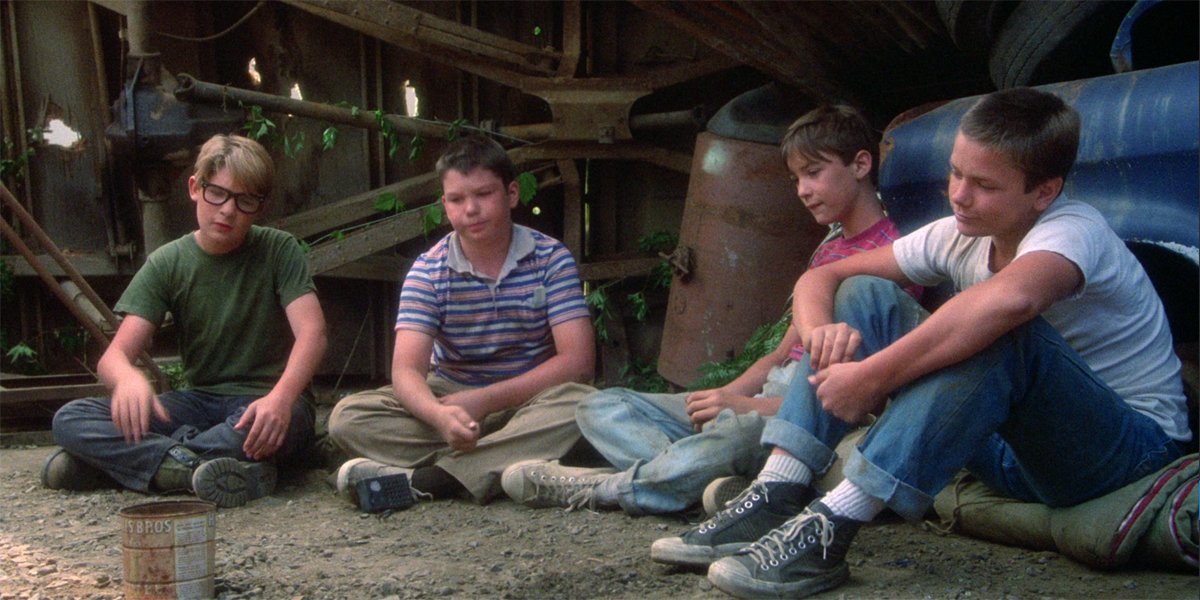
How Rob Reiner’s Stand By Me Differs From “The Body”
Being almost exactly the same age as Stephen King (he’s only five months older), Rob Reiner discovered a personal connection when reading “The Body,” deeply identifying with the characters and story. As one would hope, this resulted in a film adaptation that remains spectacularly faithful to the source material – but at the same time also one that is not without some notable deviations.
Far and away the most significant change is the perspective on who the main subject of the story is. Stephen King writes from the perspective of adult Gordie LaChance (played by Richard Dreyfuss in the film), but “The Body” is really the story of Chris Chambers (River Phoenix): an abused but stalwart preteen who is regularly crushed by how people assume the worst of him, but will never stop fighting against that perception. Alternatively, Rob Reiner’s deep feelings about the material were forged through his connection with young Gordie (Wil Wheaton), particularly the boy’s strained relationship with his father (Marshall Bell).
The big point where this is reflected in Stand By Me is in its ending – namely the showdown with Ace Merrill (Kiefer Sutherland) and his gang. The events that play out in the movie mostly trace the events as they occur in the novella (save for the fact that it is pouring rain in the text), but the big switch comes in regards to who is holding the gun that ends up scaring Ace off. The live-action version has Gordie telling his foe to “suck [his] fat one” at point blank range, but as originally written it is Chris who threatens the bully with his father’s firearm.
Screenwriters Bruce A. Evans and Raynold Gideon also made other changes from “The Body” while scripting Stand By Me, but they are mostly superficial and more a natural extension of the story changing mediums. For example, the film moves the infamous town of Castle Rock from Maine to Oregon… because the film shot in Oregon.
Other elements of “The Body” are clearly cut for pacing reasons. The story about David "Lard-Ass" Hogan (Andy Lindberg) is actually one of two included in the Stephen King novella – the other being a hard-boiled thriller called “Stud City” – but the adaptation opts not to cut away from the main action of the story more than once. Stand By Me also doesn’t include what could be called the extended version of the sequence where Gordie gets cold cuts in the deli, as King’s version includes a confrontation where the character accuses the owner of putting his thumb on the scale. But that was surely an easy cut, as the scene primarily serves as a means of highlighting the boy’s relationship with his deceased brother (John Cusack).
Lastly there is the very end of Stephen King’s version, which first includes Ace Merrill and his gang getting revenge on Gordie, and then the narrator as an adult returning to Castle Rock and seeing that Ace has become nothing more than a townie. Stand By Me tightens things up by merely having the boys say their goodbyes, and adult Gordie finish his memoir.
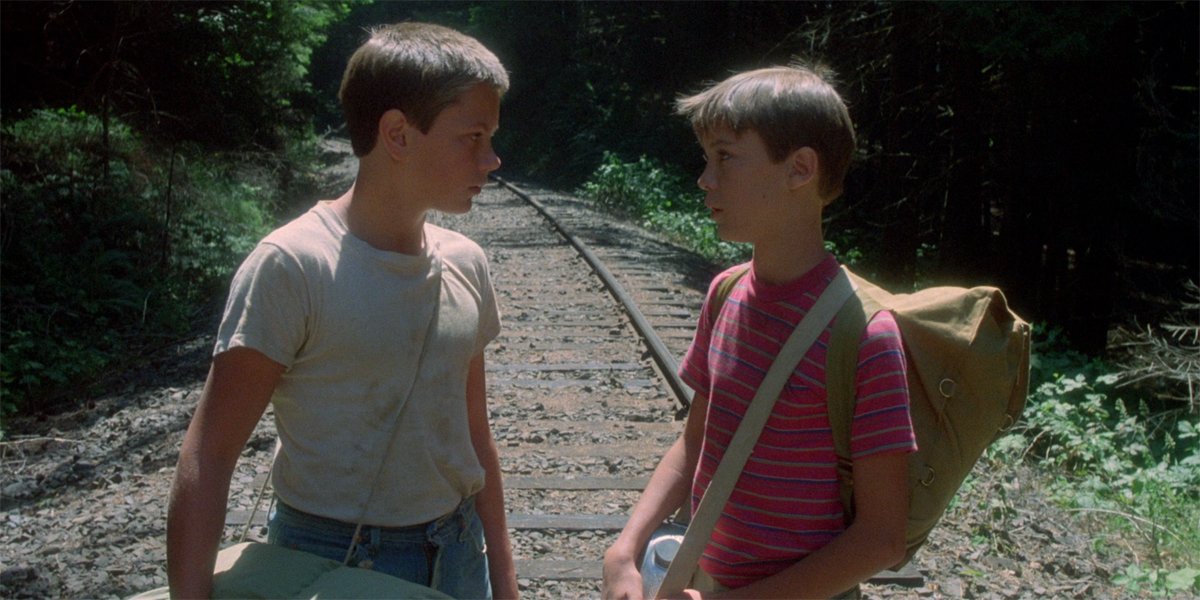
Is It Worthy Of The King?
Stand By Me may not have been advertised specifically as a Stephen King movie, but there is no questioning its spectacular and vital presence in the legacy of his books being brought to the big screen. Ignorant critics have spent decades deriding King’s love of genre storytelling, and have dismissed his contributions to literature because of his uncouth penchant for horror, but “The Body” and Rob Reiner’s movie are stunning marble pillars that stand against that asinine position. The novella exists as a beautiful statement forever and always proving the author’s versatility and the dramatic power in his prose – and the film is, without any reservation, a perfect adaptation.
The performances by Wil Wheaton, River Phoenix, Corey Feldman (as Teddy), and Jerry O’Connell (as Vern) set the gold standard for child actors, as it is nothing short of miraculous what Rob Reiner was able to do both in casting the young stars and then developing their chemistry together. Both the storytelling and the cinematography are daring for a movie centering on such youthful characters, as the emotions get big, and the camera constantly keeps all four of them in frame as they make their journey – but there is not a single inauthentic moment to be found in the entire feature. Watching them goof around in their treehouse your gut convinces you that these boys have spent their whole lives together; how else could they have such an intimate dynamic?
There is an elegant and natural flow to Stand By Me, which is stunning because there is so much about it that feels episodic as you reflect on the seemingly endless list of iconic moments – from the hair-raising run on the trestle, to the showdown with the ball-chomping Chopper, to Gordie’s heartbreaking openness about his relationship with his father. The movie only has an 89 minute run time, but it is so immersive and deeply felt that by the end you feel as though you’ve spent a whole two days with the characters, and it’s an experience you want to have over and over again.
When Rob Reiner first screened Stand By Me for Stephen King, the author was so taken aback by it that he actually rendered speechless and requested to take 30 minutes to himself. When he returned, according to Reiner’s commentary on the film’s Blu-ray, King told him that it was the best adaptation of his work that he had seen to date.
Those remarkable feelings towards the film have not abated for Stephen King over the years, as he says in 2000's Walking The Tracks documentary,
It seemed to me that Stand By Me was the first really completely successful adaptation of my work. It was a deeply felt story for me because as a writer it was a story that stepped outside the horror genre; there’s nothing particularly supernatural about the story, although it runs a gamut of emotions. And I felt that Rob Reiner responded to that, and was made better by it, and basically realized the story as a film – which doesn’t happen very often in a creative person’s life.

How To Watch Rob Reiner’s Stand By Me
Ideally everyone in the world would be given a copy of Stand By Me to watch when they are growing up, but sadly we don’t live in that world, so you’ll just have to take advantage of one of the many ways available to watch it. As of the publication of this column, the film isn’t currently available on any subscription streaming services, though it is offered for rental and/or purchase digitally from all major online retailers. Those of you who are into collecting physical media should look for the 4K edition that was released in 2019, as you get a beautiful edition of the film, as well as a director’s commentary from Rob Reiner, deleted scenes, and the documentary mentioned above.
Looking ahead to next week, Adapting Stephen King will be returning to the Creepshow franchise with a look at Michael Gornick’s Creepshow 2 – specifically focusing on the segment of the film based on the short story “The Raft” from the 1985 collection Skeleton Crew. Look for it live on CinemaBlend next Wednesday, and for now you can peruse all previous installments of this column by clicking through the banners below.







Eric Eisenberg is the Assistant Managing Editor at CinemaBlend. After graduating Boston University and earning a bachelor’s degree in journalism, he took a part-time job as a staff writer for CinemaBlend, and after six months was offered the opportunity to move to Los Angeles and take on a newly created West Coast Editor position. Over a decade later, he's continuing to advance his interests and expertise. In addition to conducting filmmaker interviews and contributing to the news and feature content of the site, Eric also oversees the Movie Reviews section, writes the the weekend box office report (published Sundays), and is the site's resident Stephen King expert. He has two King-related columns.




